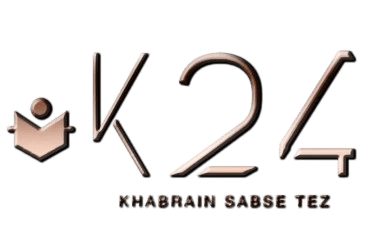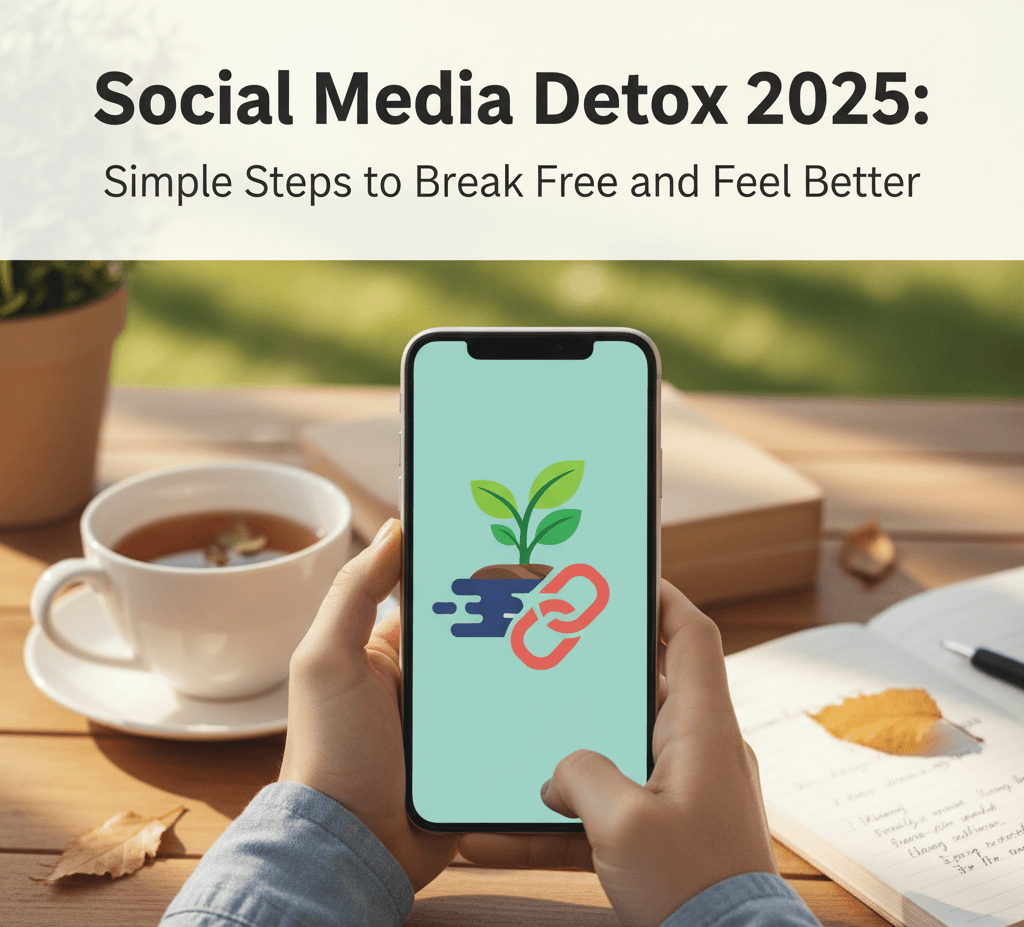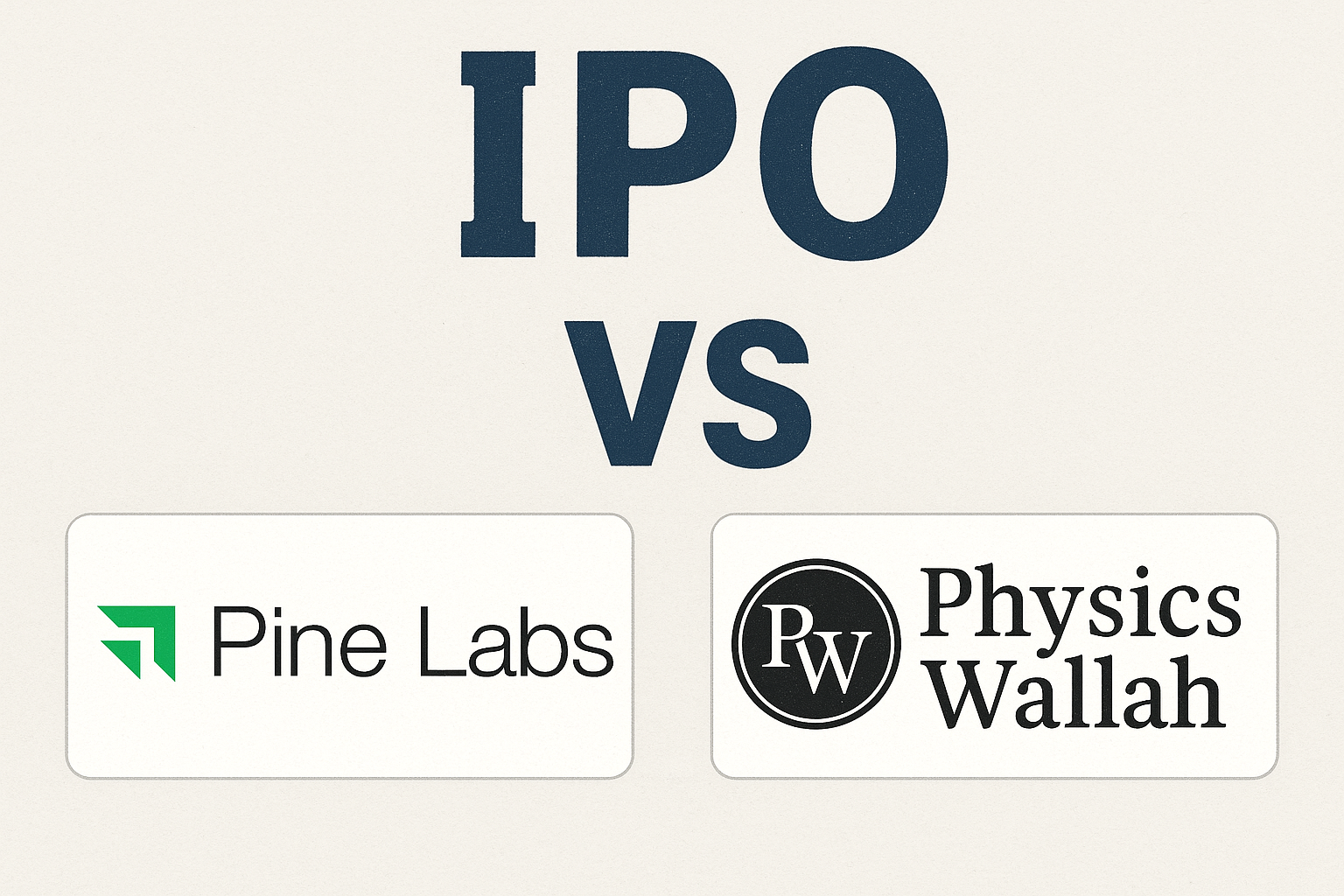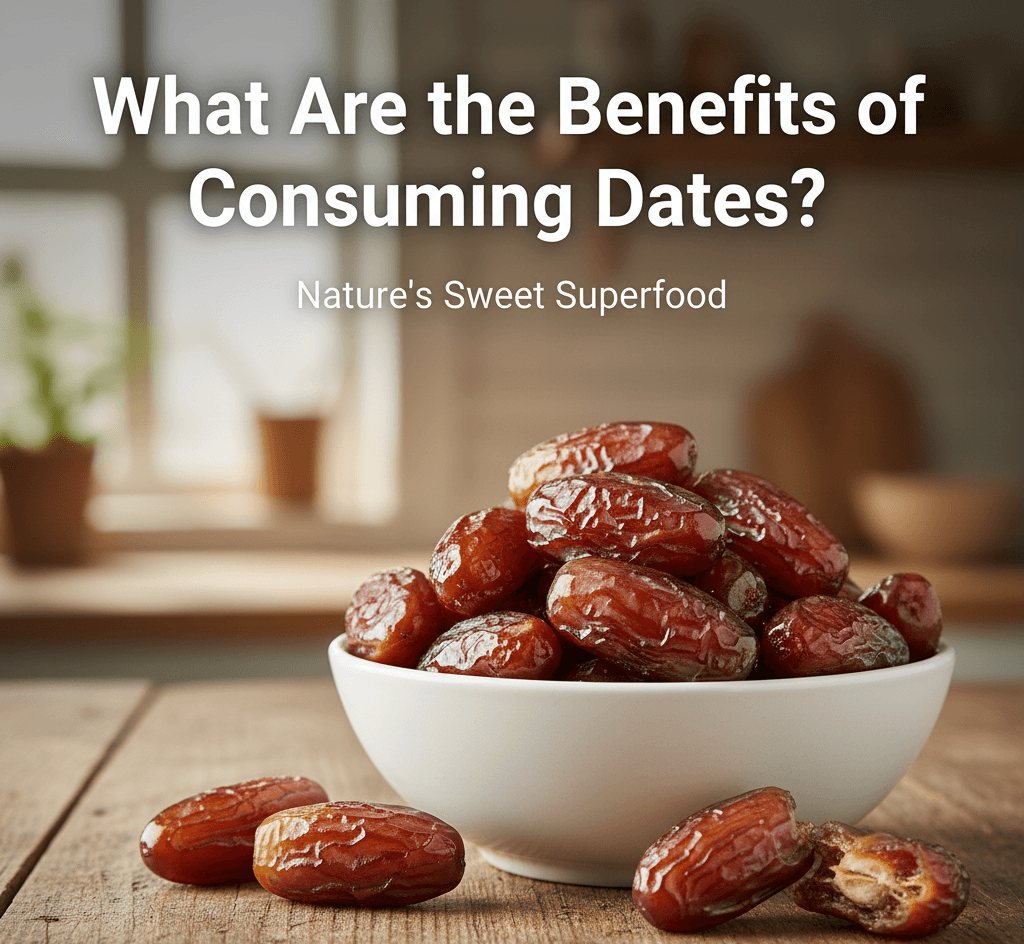It’s 2025, and something surprising is happening across the digital landscape — people are actually logging off. The “Social Media Detox 2025” movement has exploded from a whisper into a roar, with millions choosing mental peace over endless scrolling. Moreover, this isn’t just a handful of tech-skeptics or privacy advocates making noise. From A-list celebrities to exhausted college students, people everywhere are stepping away from their feeds, calling social media toxic, draining, and increasingly fake.
The phrase “why everyone is quitting social media” isn’t just another trending hashtag; instead, it’s become a genuine reflection of modern burnout and a collective awakening. But what’s really driving this massive shift? Is it primarily about mental health, growing privacy concerns, or simply the deep desire to feel human again?
The Rise of Social Media Fatigue: When Connection Became Exhaustion
Social media was once the vibrant heartbeat of our digital lives, the place where we felt connected and informed. However, somewhere along the way, it transformed into a noise-filled, attention-hungry space that leaves us feeling emptier than before we opened the app.
Frankly, people are tired. Tired of pretending their lives are perfect, tired of endless scrolling, and absolutely exhausted from constantly comparing themselves to carefully curated highlight reels.
The Key Reasons Behind the Mass Exodus
Mental Health Matters More Than Ever:- Social Media Detox 2025
First and foremost, the toll on mental wellbeing has become impossible to ignore. Endless scrolling doesn’t just waste time—it actively fuels anxiety, stress, and that gnawing feeling that everyone else’s life is better than yours. Furthermore, studies continue to show a direct link between heavy social media use and depression, especially among young adults. Consequently, people are choosing their peace of mind over their follower count.
Privacy Concerns Have Reached a Tipping Point
Additionally, users are increasingly worried about how their data is being tracked, stored, and sold to the highest bidder. Every like, every search, every pause on a post—it’s all being monitored. Therefore, the creepy feeling of being constantly watched has pushed many to reconsider whether staying connected is worth sacrificing their privacy.
Content Overload Creates Confusion, Not Connection
Meanwhile, the sheer volume of information bombarding us daily has become overwhelming. Too much content creates mental clutter instead of meaningful connection. Instead of feeling informed, we feel scattered and unable to focus on what truly matters.
The Desire for Real Life Has Returned:- Social Media Detox 2025
Perhaps most importantly, people are craving genuine conversations and authentic relationships again. They miss the spontaneity of unfiltered moments, the depth of face-to-face interactions, and the simplicity of living without documenting everything for an audience. In essence, we’re remembering what it feels like to simply exist without performing.
READ MORE:- What Are the Benefits of Consuming Dates?
How the Trend Is Dramatically Changing Online Behavior:-Social Media Detox 2025
The social media detox has moved past niche wellness retreats and mindfulness gurus. On the contrary, it’s become completely mainstream, and here’s how it shows up everywhere:
- Influencers are publicly announcing digital breaks or deleting accounts altogether, despite losing income
- Students are establishing “screen-free Sundays” to regain focus and improve their grades
- Families are rediscovering face-to-face bonding time over dinner instead of scrolling at the table
- Professionals are selecting mindfulness apps over endless scrolling during breaks
This shift isn’t merely about quitting apps; rather, it’s about reclaiming peace, restoring focus, and finding balance in an increasingly unbalanced world.
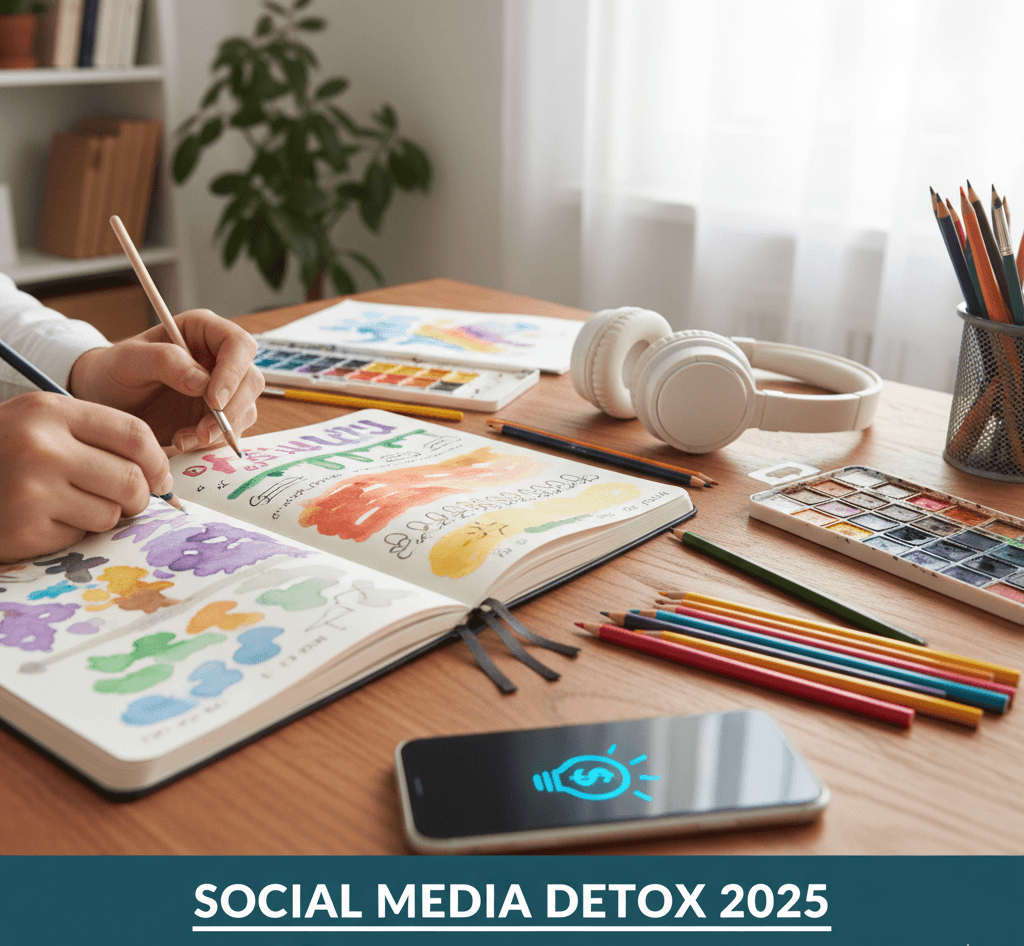
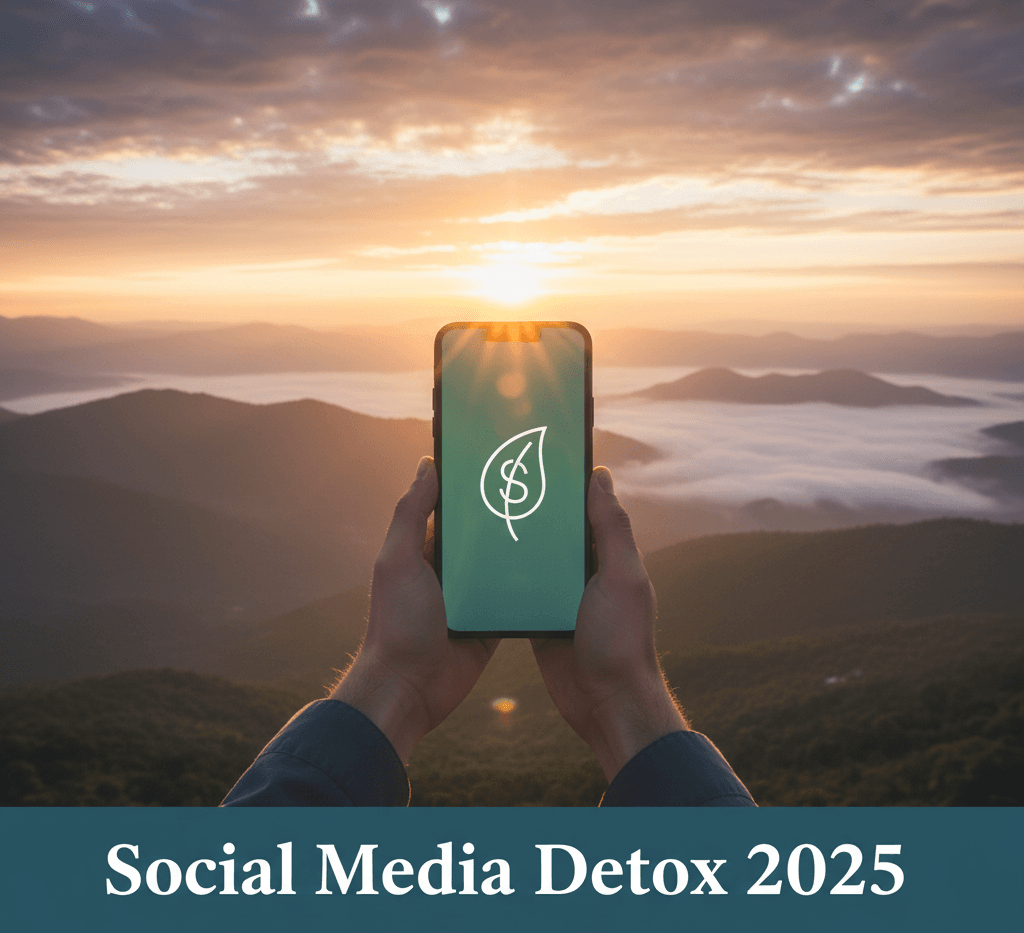
The Real Impact of Quitting Social Media in 2025
Positive Changes People Are Actually Noticing:- Social Media Detox 2025
When people step away from social media, even temporarily, the benefits often surprise them. Here’s what former heavy users consistently report:
Better Sleep and Reduced Anxiety
Without the blue light and stimulating content before bed, people fall asleep faster and sleep more deeply. Additionally, not starting the day by immediately scrolling through negativity means waking up with less anxiety.
Improved Productivity and Mental Clarity
Once you stop checking your phone every few minutes, your brain can actually focus on one task at a time. Consequently, people report finishing projects faster and thinking more clearly throughout the day.
Deeper Connections With Real People
Interestingly, when you’re not maintaining hundreds of shallow online relationships, you have more energy for meaningful connections. Phone calls become longer, conversations become deeper, and friendships become more genuine.
More Time for Hobbies, Learning, and Rest
Suddenly, there are hours in the day you didn’t know existed. People are rediscovering old hobbies, learning new skills, reading actual books, and simply resting without guilt.
The Hidden Challenges Nobody Talks About
However, let’s be honest—quitting social media isn’t all sunshine and mindfulness. There are real challenges that come with disconnecting:
- Feeling disconnected from trends and missing important announcements from friends
- Difficulty marketing for online businesses that relied on free social media promotion
- Missing the community of digital creators and support groups found online
- The persistent fear of missing out, even when you know intellectually you’re not missing anything important
Still, most who step away agree on one thing: the freedom and mental clarity are absolutely worth these temporary challenges.
READ MORE:- Best Cardiologists in Gurgaon: Find Your Heart Specialist (2025)
How You Can Start Your Own Thoughtful Digital Detox
If you’re tempted to join this growing wave of digital minimalism, here’s the good news: you don’t have to go cold turkey. Instead, start small and build sustainable habits:
Set Clear Boundaries With Screen Time
Limit your social media use to specific hours each day. For instance, allow yourself 30 minutes in the evening rather than scattered scrolling throughout the day. Additionally, use built-in screen time tools to enforce these limits.
Turn Off Notifications — They’re Designed to Hook You
Seriously, those little red dots and constant pings are engineered by teams of experts whose job is keeping you engaged. Therefore, turning them off removes the psychological trigger to constantly check your phone.
Unfollow Accounts That Don’t Add Value
Be ruthless here. If an account makes you feel inadequate, angry, or envious, unfollow it. Consequently, your feed becomes a place you want to visit rather than a source of stress.
Take Short Breaks to Reset Your Focus
Even a weekend offline can dramatically reset your relationship with your devices. Try it during your next vacation or long weekend. Moreover, you’ll return with fresh perspective on how much you actually need these platforms.
Replace Scrolling With Mindful Activities
This is crucial—don’t just eliminate scrolling without replacing it with something positive. Instead, fill that time with journaling to process your thoughts, walking outside to reconnect with nature, reading books that expand your mind, or pursuing hobbies that bring you joy.
Remember, you don’t have to quit completely or become some kind of digital hermit. Sometimes, finding balance is the real key to lasting change.
The Bigger Picture: What This Trend Really Means for Society
The “social media exodus” we’re witnessing isn’t fundamentally about rejection—it’s about transformation. People aren’t giving up on connection; rather, they’re redefining how they connect, share, and express themselves in more intentional ways.
Instead of chasing likes and followers, people are chasing peace and purpose. Instead of performing for an audience, they’re choosing to simply live. Furthermore, instead of curating perfect images, they’re embracing imperfect reality.
This shift signals the birth of a new digital culture—one that’s focused on authenticity over perfection, emotional health over engagement metrics, intentional connection over passive scrolling, and real-world experiences over digital documentation.
Looking ahead, we’re likely to see more diversity in how people use technology. Some will remain fully engaged on traditional platforms. Others will migrate to smaller, more intimate digital spaces. Meanwhile, many will adopt a hybrid approach—using technology intentionally while maintaining strong offline lives.
Ultimately, this isn’t the end of social media. Instead, it’s the evolution toward a healthier relationship with it.
Final Thoughts: Your Digital Life, Your Choice
If you’ve ever felt exhausted from pretending online, understand that you’re far from alone. The wave of people quitting or drastically reducing their social media use in 2025 is more than just a passing fad—it’s a genuine reflection of what society truly needs right now: clarity, calm, and authentic connection.
You don’t have to delete every app or make some dramatic announcement to feel better. Simply decide how much of your time, attention, and peace you’re willing to trade for likes, comments, and fleeting validation. Maybe, just maybe, the next truly viral trend isn’t online at all—it’s finding peace in the real world, right where you’re standing.
